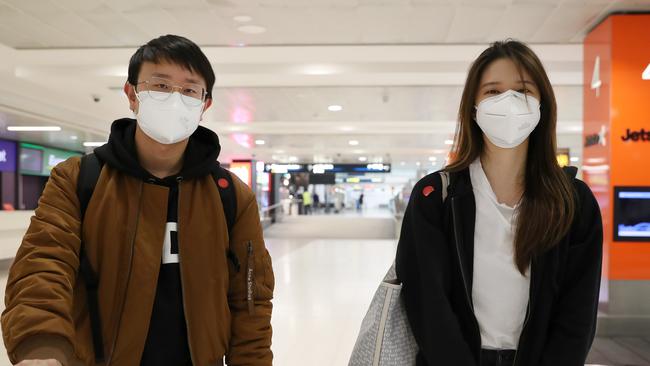
But now, with government-to-government relations at by far their lowest point since China opened up in 1972, we have to hope that the strength of people-to-people relationships, and the transactional benefits of getting an education, will maintain the strong demand for Australian degrees.
However what the Chinese government may decide to do is a very different thing. It would be the easiest thing in the world for Beijing to add education to the list of Australian products which it is subjecting to trade barriers.
READ MORE: Risk for unis of China reprisals | Thumbs down for remote learning | $10m gift for UNSW | New chief for humanities academy
For example, the wolf warriors could cause immediate damage by using China’s great internet firewall to block access to Australian online courses from China.
As The Australian reports today, at least 62,000 Chinese students are currently studying online from China because they are unable to travel here. Forcing them to withdraw from study would cause consternation in universities, destroying education programs and costing them the fees these students are paying which, even allowing for COVID discounts, I estimate are worth over $1bn a year.
Hopefully Beijing is mindful enough of its own citizen’s interests not to force them to withdraw with a part finished degree.
However, when the borders open it could be a different story for new students who want to start their course of study in Australia. Would the Chinese government prevent new students from enrolling, forcing those who want an overseas degree to choose alternatives to Australia?
The way things look now, it’s a possibility that can’t be ruled out. Such a ban would have a major impact on universities (which earned over $7bn from Chinese student fees in 2019), and on the economy as a whole which benefited from over $12bn of Chinese student spending in 2019.
Hopefully Beijing would see the futility of such an action. It would only drive students to other English speaking countries with high quality education such as the US, the UK, Canada and New Zealand. The Chinese government has no reason to particularly favour any of those countries over Australia. And unlike other export products, the Chinese can’t buy education from alternative sources in developing, or emerging economy, countries.
But if the Chinese government does decide to interfere with its students’ desire to study in Australia, what should Canberra do?
Actually, Australia can’t do much about a Chinese education boycott. But a lot can be done to keep people-to-people links strong and to make it clear that our problem is with the Chinese government, not Chinese people.
As tensions rise, Morrison government ministers should be giving a very clear and co-ordinated message that Australia welcomes Chinese students, that we treat Chinese people with friendliness and respect, and that any discrimination against, or abuse directed at, people of Chinese heritage in Australia is totally unacceptable.
This is the best way to respond to Beijing. It will keep people-to- people ties alive, which will make it easier to one day revive trade links.
And, importantly, it makes abundantly clear what our values are.




There’s no reason to think that Chinese students will boycott Australia en masse. Until COVID-19 hit, Australian universities were very popular with Chinese students who were willing to pay north of $40,000 a year in tuition fees to study here.